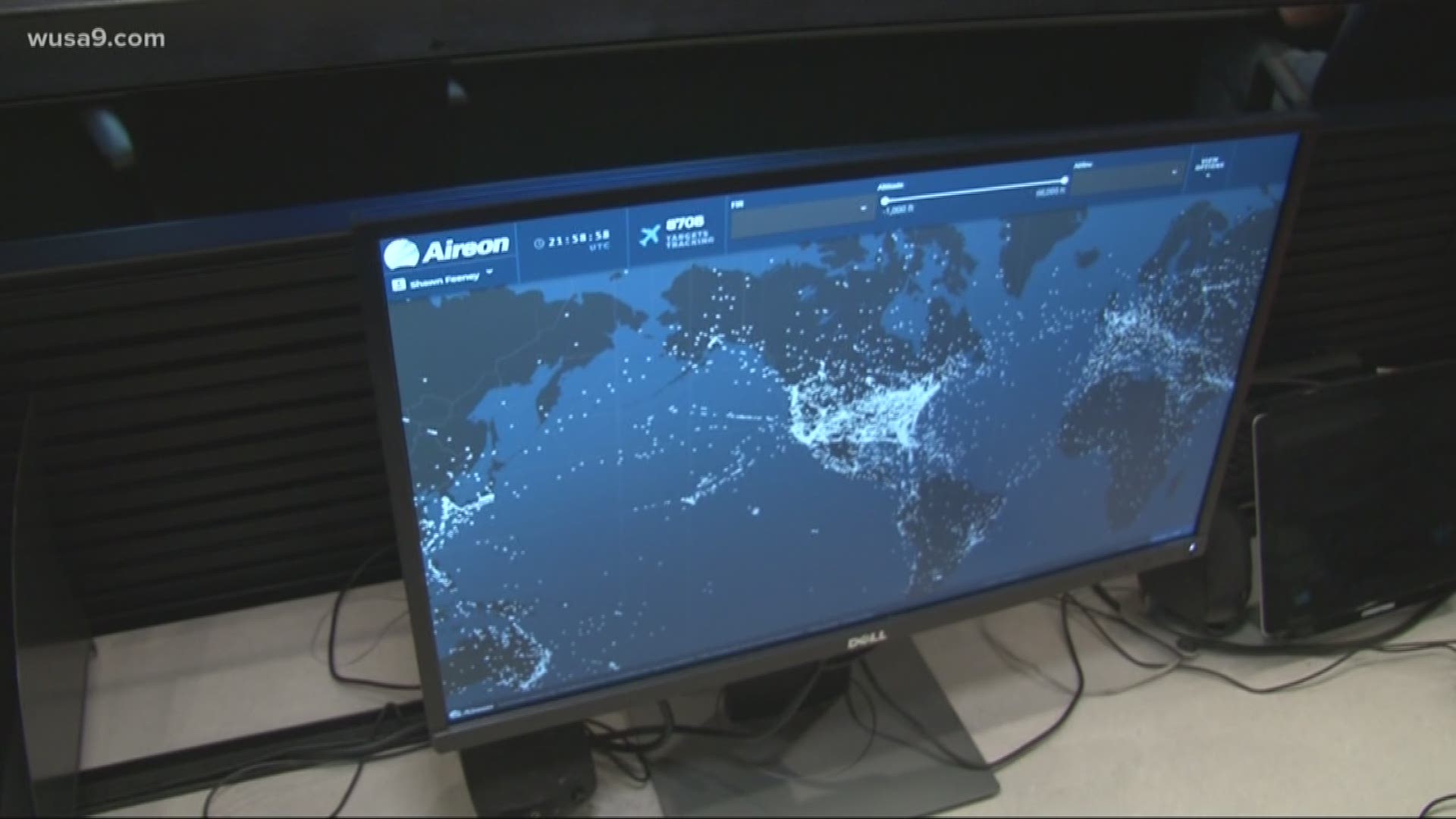WASHINGTON — Five years after the disappearance of Malaysia Airlines Flight 370, technology being pioneered in our backyard is aimed at preventing a repeat of one of aviation’s biggest mysteries.
This week, McLean, Va. company Aireon launched its satellite-based flight tracking system, worldwide.
“We’ve spent the last eight years creating a global, safety-of-life service for air travel,” said Don Thoma, president of Aireon.
239 people were on board the Malaysian Boeing 777 when it disappeared March 8, 2014. Thoma says his company’s technology could have tracked the airplane as it flew out of radar range over the Indian Ocean. There are numerous theories about the mysterious flight, but none have been backed up by tracking data.
“We’re tracking all the world’s aircraft,” said Thoma as he gave WUSA9 an exclusive look at the technology, known as satellite-based ADS-B.
The system is a major step forward in tracking a flight’s course, speed, and altitude. For decades, flights have been tracked using ground-based radar stations which cannot “see” airplanes making distant ocean crossings far away from shore.
On Tuesday, Aireon system’s went live with launch partners in the United Kingdom and Canada. Company officials say that Canadian air traffic controllers could, for the first time, see flights over remote parts of the province of Alberta, where there was previously a gap in radar coverage.
U.S. aviation officials tout a robust network of ground-based radar coverage. The Federal Aviation Administration will start only a trial of the Aireon system over the Caribbean next year.
“We’re confident given their commitment to safety and commitment to being a leader in air traffic control that they’ll adopt this,” said Thoma. “They operate twenty percent of the world’s oceans so you can only imagine that they’d need to use a system like this.”
The system is carried on board 66 satellites as part of the new Iridium network. Data is monitored at the company’s operations center in Leesburg, Va. as well as other sites.
“It’s a perfect symbiotic relationship,” said Iridium CEO Matt Desch. “We were able to host a complete new service that’s very valuable and very complimentary to what we do and we’re really the only ones that can do that. We’re proud to be part of it.”

